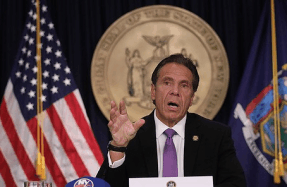Stop Punishing Gig Workers, California

Americans need jobs. The national unemployment rate exceeds 10 percent, and in many states, like California, it’s even higher—nearly 15 percent. Yet a recent judicial ruling will make it harder for the Golden State labor market to recover.
On Monday, California Superior Court Judge Ethan P. Schulman ruled that Uber and Lyft drivers are employees and must be compensated that way. His ruling upheld Assembly Bill 5, passed last year, which designates most “gig” workers, normally contract workers, as full employees—meaning that they’re entitled to benefits, minimum wages, and other protections. The rideshare companies argued, unsuccessfully, that the law should not apply to them. AB5 was a bad idea when it passed last year. It’s an even worse one in our current economic climate.
Contract work has many advantages. In our Covid-19 economy, flexibility has become crucial. Many gig workers, like freelance journalists, prefer flexibility and vigorously opposed AB5. Some people do gig work to supplement income from other jobs and to ensure against lost income. Turning contractors into employees makes them more expensive to the employers who hire them, which means fewer jobs.
Most critically, converting freelancers to employees—from 1099s to W2s—destroys the flexibility that made it possible to hire contract workers in the first place. If employers must pay their workers like regular staff, they’ll want, in turn, to impose all the normal conditions that apply—such as telling their employees when they’re expected to work. This will make it harder for people to do freelance side work for extra money.
Rideshare companies are already dealing with flagging demand. Now they face higher labor costs, which means even fewer jobs in a tight labor market. Uber says that it may temporarily shut down in California—just when households most need the option of extra income.
The labor market could suffer long-term damage. Washington University accounting professor John Barrios argues that long periods of unemployment erode skills and make it harder to find work. Gig work keeps people active in the labor market, even when the economy is in a deep recession. Doing some work, even part-time, helps people avoid falling into the long-term unemployment trap. Just staying in the habit of going somewhere and earning income is valuable. It provides structure and boosts morale.
Gig workers do face risks. When the demand for Lyft and Uber dropped, their incomes dropped with it—unlike those of salaried employees. Gig workers have fewer options for health insurance and don’t get sick leave. Still, while turning drivers or freelance journalists into employees may sound helpful, what it really means is that only a fraction of gig workers will receive these benefits. The rest will be let go.
Instead of trying to force an earlier, industrial model of labor relations onto a radically different economy, we should develop new institutions to support more flexible work. The federal government’s CARES Act extended unemployment benefits to contract workers. Good, affordable health insurance not tied to employers is also critical. Uber CEO Dara Khosrowshahi suggests that companies employing gig workers should be required to contribute to funds that their workers can use to buy health insurance or finance paid sick leave.
In deciding that AB5 applies to rideshare companies, Judge Schulman may have interpreted the law correctly. But it’s a bad law and should be repealed. Uber and Lyft are funding a ballot initiative this fall that would let drivers be contract workers. Independent contractors for firms with less money and political clout also need the option for flexible work. Healing the California economy won’t be easy, but one important step would be ending AB5 entirely.
City Journal is a publication of the Manhattan Institute for Policy Research (MI), a leading free-market think tank. Are you interested in supporting the magazine? As a 501(c)(3) nonprofit, donations in support of MI and City Journal are fully tax-deductible as provided by law (EIN #13-2912529). SUPPORT






